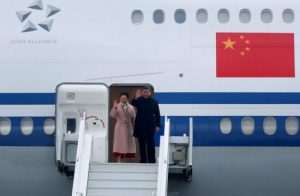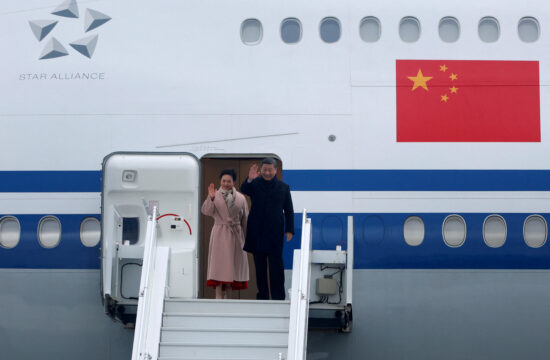In a strongly-worded statement
Chinese President Xi Jinping criticized NATO’s involvement in the 1999 bombing of Belgrade, just days before his scheduled visit to Serbia. Xi’s remarks add a diplomatic twist to his forthcoming trip, further shaping China’s stance on historical grievances and its expanding global influence.
The 1999 NATO bombing campaign, conducted during the Kosovo War, targeted Serbian military infrastructure but also resulted in civilian casualties and extensive damage to Serbia’s capital, Belgrade. Two decades later, the wounds of this event still resonate deeply in the Balkans, fueling resentment and political tensions.

Xi Jinping’s condemnation of NATO’s
actions reflects China’s strategic alignment with Serbia and its broader geopolitical agenda. Beijing has been actively cultivating ties with Belgrade, offering economic investments and diplomatic support. By rebuking NATO, Xi not only positions China as a sympathetic ally to Serbia but also underscores his administration’s commitment to challenging Western dominance in global affairs.
The timing of Xi’s statement underscores its significance. As he prepares for his visit to Serbia, where he is expected to sign lucrative economic agreements and bolster bilateral relations, Xi’s rhetoric serves multiple purposes. It signals solidarity with Serbia, amplifies China’s voice on the international stage, and subtly criticizes NATO’s interventionist policies, all while showcasing Beijing’s growing influence in regions traditionally dominated by Western powers.
While Xi’s remarks may resonate
with Serbian officials and nationalists, they are likely to draw criticism from NATO members and Western governments. The 1999 bombing campaign, while controversial, was conducted under the auspices of international intervention to halt ethnic cleansing in Kosovo. Xi’s revisionist narrative challenges this interpretation, setting the stage for potential diplomatic friction between China and the West.
As Xi Jinping prepares to touch down in Belgrade, his words reverberate beyond the diplomatic sphere, casting a spotlight on historical grievances and the evolving dynamics of global power politics. The fallout from his condemnation of NATO’s actions in 1999 serves as a reminder of the complex interplay between history, geopolitics, and national identity in shaping international relations.
Xi Jinping’s Critique of NATO: A Calculated Move in China’s Geopolitical Chess Game
Xi Jinping’s recent denunciation of NATO’s actions in the 1999 Belgrade bombing is more than just a diplomatic statement; it’s a strategic maneuver in China’s quest for global influence.
By publicly rebuking NATO ahead of his visit to Serbia, Xi Jinping not only aligns himself with a historical grievance shared by the Serbian people but also underscores China’s emergence as a formidable player in international affairs. This calculated move serves to assert Beijing’s narrative on historical events while positioning China as a champion of sovereignty and non-interference—a stark contrast to the interventionist policies often associated with Western powers.
Xi’s condemnation of NATO’s actions
is a masterstroke of geopolitical symbolism. It not only strengthens China’s ties with Serbia but also sends a clear message to the world: Beijing will challenge Western hegemony and rewrite the narrative of global history to serve its own interests.
However, Xi’s maneuver is not without risks. By openly challenging NATO’s intervention in Kosovo, China risks alienating Western allies and exacerbating existing tensions. Moreover, his revisionist narrative may embolden other states to reinterpret historical events through their own geopolitical lenses, potentially destabilizing international relations further.
Yet, despite these risks, Xi’s gambit underscores China’s growing confidence on the world stage. As Beijing continues to assert its influence in regions traditionally dominated by Western powers, Xi’s critique of NATO serves as a reminder that the era of unchallenged Western hegemony is coming to an end.
In the geopolitical chess game of the 21st century, Xi Jinping’s move may be controversial, but it is undeniably strategic. As China’s influence continues to expand, expect more bold statements and calculated maneuvers from Beijing as it seeks to reshape the global order in its image










